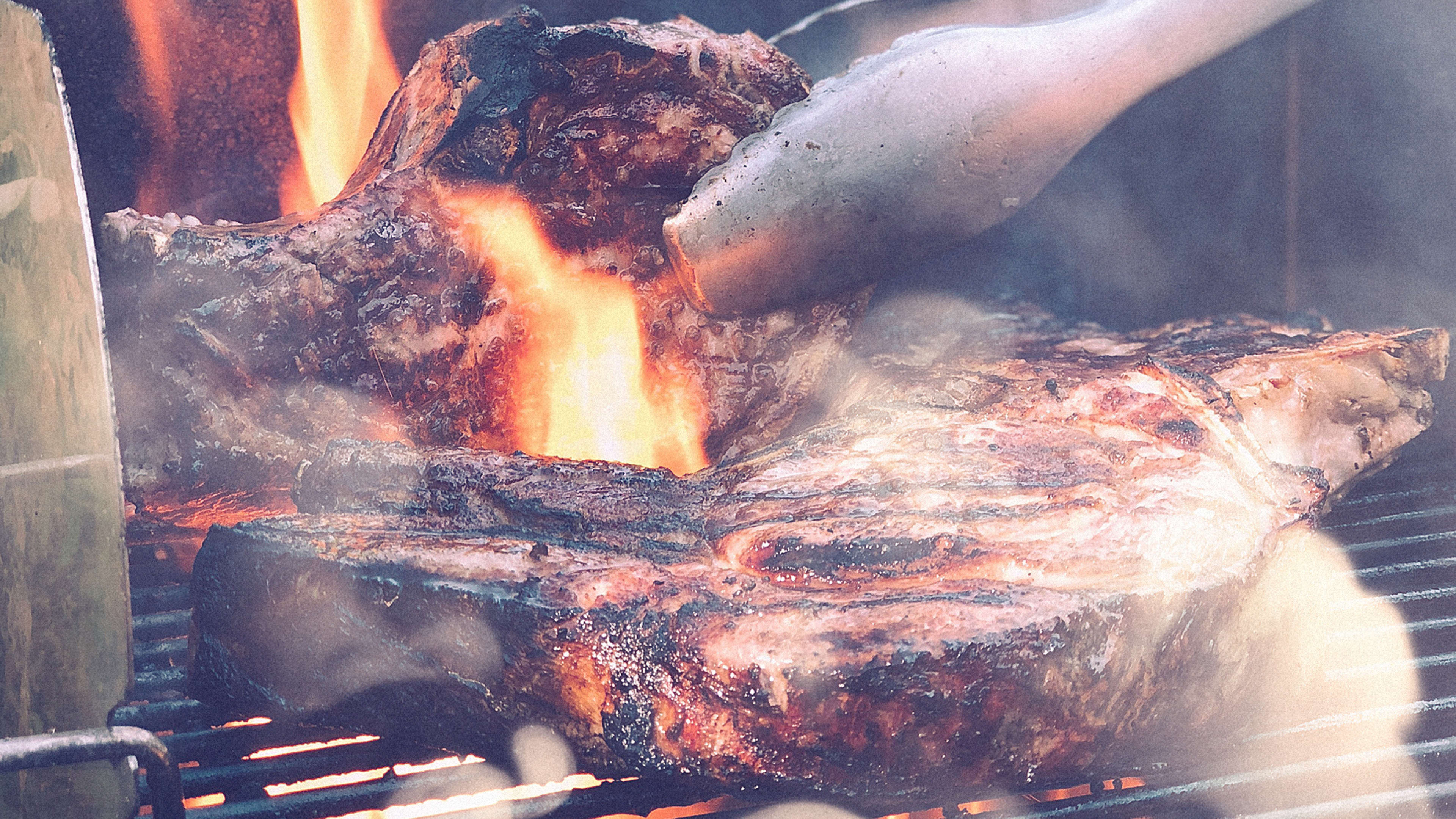We’re now more than a week out from when the UN’s Intergovernmental Panel on Climate Change dropped its terrifying report detailing the urgency to dramatically reduce emissions and stop global warming in the next three decades or so. Meat eaters, we are sorry to report that we have bad news for you: You’re a big part of the problem.
New research from the World Resources Institute finds that, taking into account trends in population growth and meat consumption, agriculture alone could eat through the majority of our emissions budget for keeping global warming below 2 degrees Celsius–the point at which climate-change effects would create wide-scale devastation. Under these circumstances, the real aim–limiting global warming to no more than 1.5 degrees Celsius–would be impossible to attain.
The global population is expected to grow to 10 billion people by 2050, and if current trends hold, meat and dairy consumption is expected to boom right along with it: WRI mapped trends in animal-based food consumption from 1961 and extrapolated them out to 2050, and found people in 2050 will probably eat 70% more meat and dairy, and 80% more beef.
[Image: courtesy World Resources Institute]
There’s no getting around it: For us to avoid a total climate disaster in the next few decades, we have to collectively alter our diets. Beef, for instance, creates 220 tons of CO2 emissions for every million calories consumed. That’s around 30 times the amount of emissions required to produce the same caloric quantity of beans. And that’s not even considering land-use implications–because producing beef requires both land to grow feed, and land upon which cows can graze or pasture, it’s radically less efficient than just using that land to grow produce that humans can consume. The same logic applies to all animal-derived products.
[Image: courtesy World Resources Institute]
Given this knowledge, doing anything other than dramatically reducing our animal-product consumption would be, frankly, insane. Fortunately for the meat and dairy lovers out there, plant-based alternatives are gaining momentum: You can now order the Impossible Burger everywhere from White Castle to Air New Zealand flights; Memphis Meat makes plant-based chicken that tastes like the real thing; Sonic is offering a half-beef, half-mushroom burger; Ripple Foods is making eerily convincing milk from peas. This is just scratching the surface, and startups like Bolt Threads and Modern Meadow are also delving into ways to create leather substitutes in the lab, to tackle our animal consumption problem in the fashion world.
WRI, too, is not sitting on this problem: The organization, in partnership with the UN Environment, Carbon Neutral Cities Alliance, and others, launched a new initiative to get restaurants, companies, and hospitals to up their share of plant-based food offerings with a goal of reducing food emissions by 25% by 2030. The Cool Food Pledge officially launched at the Global Climate Action Summit in San Francisco this year with 10 signatories including Genentech, Morgan Stanley, WeWork, and the Swedish restaurant chain Max Burger. They’ll take steps from redesigning menus and cafeterias to promote plant-based options, to tweaking recipes to ensure that those options taste good enough to tempt people away from meat.
And if you’re looking for a way to begin reducing your meat consumption at home, start with this: Researchers have found that if everyone in the U.S. immediately swapped out beef for beans, we could hit 50% to 75% of our greenhouse-gas-reductions targets for the year 2020. It may not be glamorous, but it’s certainly easy and effective.
Recognize your brand’s excellence by applying to this year’s Brands That Matter Awards before the early-rate deadline, May 3.
